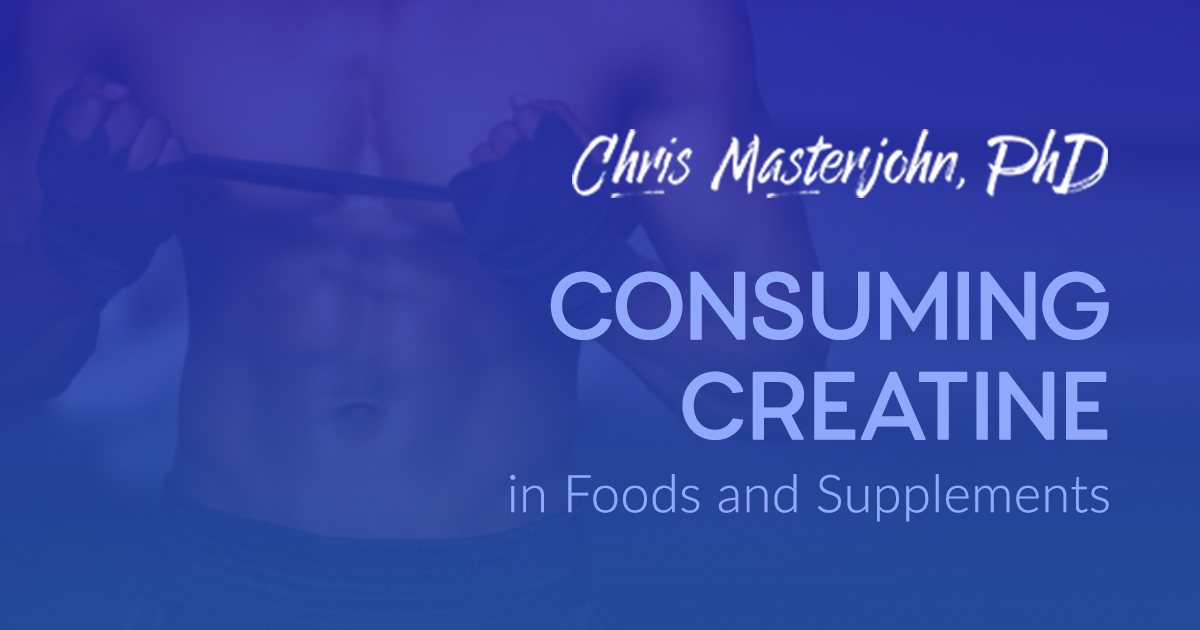
Creatine, best known for its ability to build muscle and enhance athletic performance, is also critical for digestion, mental health, protecting your hearing, and keeping your skin vibrant and youthful. This page provides supplement recommendations and a searchable database of the creatine content of 140 foods.
Keep reading to learn more about creatine, or skip ahead to the supplement recommendations or the food database.
Who Needs Creatine?
Creatine is one of the most effective supplements at supporting athletic performance ever studied. But creatine isn't just for athletes. It's for everyone.
Most of us have about 120 grams of creatine in our body and lose two or three grams a day in the urine as it degrades to a closely related compound, creatinine. To make up for this, we synthesize an equal amount of creatine every day.
We also obtain creatine from food. If we were to eat one to two pounds of meat per day, as many hunter-gatherer groups did, we would obtain all this creatine from our diet rather than having to synthesize it. Most of us eat less creatine than this, though, and you can estimate how much you eat using the food database below.
Why Creatine Is So Important
Creatine is needed to recycle ATP, the fundamental unit of energy we use in all of our cells. Creatine is best studied in the context of sports performance, where it has been shown in scientific studies to improve weight lifting, cycling, jumping, sprinting, and swimming.
While 90% of creatine is found in our muscles, it is also found in high concentrations wherever there is high demand for energy:
- In sperm, creatine provides the power used to flip the tail and swim up the vaginal canal. This suggests that creatine is important to male fertility.
- In our eyes, creatine provides the power needed to translate light and darkness into the electrical signals that generate vision once integrated within our brains. This suggests that creatine is important to healthy vision.
- In the hairs of our inner ear, creatine provides the power needed for high-sensitivity hearing, balance, and equilibrium. In mice, creatine supplementation protects them from noise-induced hearing loss.
- In our stomach, creatine provides the power to pump the stomach acid needed to digest our food. In the intestines, creatine provides the power needed to absorb nutrients. Our intestines have large finger-like projections known as villi that provide the enormous surface area needed for nutrient absorption, and the cells at the tips of the villi need to be replaced every few days. Creatine provides the large amount of energy needed to replace these cells on such a quick schedule. All of this suggests that creatine is very important to digestion and gastrointestinal health.
- In our skin, creatine provides the power for the production of the keratin that lines the outer surface. It powers hair growth, too. It even powers the production of sebum, which keeps our skin water-proof and lubricated. When scientists study isolated skin cells, topical application of creatine protects them from the damage induced by ultraviolet light. Creatine also provides the power for wound healing. All of this suggests that creatine can help maintain vibrant, healthy, youthful skin.
- Our brains are only two percent of our bodyweight, but consume twenty percent of our energy. This huge energy demand is largely provided by creatine.
Several hundred people worldwide have been diagnosed with genetic disorders in the ability to make creatine. Although this does indeed hurt their muscle power, the most harmful effects occur to their nervous systems: children fail to develop on time, both physically and mentally; they suffer from intellectual disabilities, including speech delay, and often cannot form full sentences; and they display behaviors characteristic of autism and hyperactivity disorders. They also suffer from terrible gastrointestinal distress, including frequent vomiting, acid reflux, and difficulty feeding.
While nearly all of us are capable of making creatine, the great difficulties faced by those who cannot emphasize the importance of creatine to neurological and digestive health.
In fact, otherwise healthy women diagnosed with major depression can improve their depression by taking five grams of creatine per day.
Perhaps creatine supplementation also might improve fertility, eyesight, hearing, digestion, skin health, and other aspects of mental health or just sheer brain power.
Which Creatine Supplement to Use
If you choose to use a creatine supplement, I recommend using anything that contains Creapure as its only ingredient. Creapure is the highest purity creatine available and is repackaged under many different brand names. It is micronized, which reduces the chalkiness and makes it easier to get down, and it is creatine monohydrate, which is the most effective form and the one used in most research.
From among the various options, I recommend Optimized Nutrition micronized creatine powder. If you buy a single bottle, it is available for Amazon Prime free one-day shipping, and costs $13.60 per bottle, which is 2.3 cents per gram or 11.5 cents per day when taken at 5 grams per day. You can save 5% if you subscribe to it, 15% if you subscribe to at least four other items, and 20% if you also pay with an Amazon store card.
If you expect to take creatine while traveling, I recommend getting Optimized Nutrition creatine caps. Carrying around capsules is a lot easier than little baggies of powder. This raises the price to about 14 cents per day but the convenience may well be worth it.
How Much Creatine To Use and When to Take It
The standard dose of creatine is 5 grams per day. Many athletes start with a “loading phase” where they take this dose four times per day to yield a total of 20 grams, and keep this up for four or five days before reducing the dose to the standard 5 grams.
Some people may get full benefit with as little as three grams per day, but there is no harm in taking five, so I recommend just taking five. Without a loading phase, it might take you about four weeks to fully get all the creatine into your muscles. If you are patient, the loading phase is not necessary, and skipping it will reduce any possible side effects, such as bloating or other digestive distress.
The absorption of creatine is near complete under almost any conditions. However, taking it with a carbohydrate-containing meal prevents you from peeing it out and helps push it into your muscles. Taking it after a good workout also helps it reach the muscles better.
Nevertheless, micromanaging your creatine dose is unlikely to be very important over the long-term. Just taking five grams per day whenever it is most convenient will allow you to reap full benefits over time.
Creatine in Foods
Creatine is most abundant in red meat, pork, poultry, and fish. There is much less in dairy, eggs, and shellfish. Creatine is mostly in muscle meat; organ meats such as liver, heart, and kidney have very little.
Cooking degrades creatine. The exact amount lost varies widely according to which cut is being cooked, but it always increases with the degree of doneness. For example, one study found that steak cooked medium lost 27% of its creatine, while steak cooked well done lost 35%. A significant amount of creatine moves into the juices of meat during cooking, so saving the juice for consumption will allow you to consume more creatine.
It generally takes one to two pounds of muscle meat per day to yield 3-5 grams of creatine. This is well within the scope of what many of our ancestors ate as hunter-gatherers. We may not be able to eat this much creatine from food because we may have other priorities that require restricting meat or increasing our consumption of other foods. So, creatine supplementation is a way to achieve the high end of the creatine consumption possible within a natural, whole foods diet.
The database below has 140 entries for foods, cooked and processed in various ways. Have fun looking through the database, and let me know in the comments if you notice any trends among the foods that you think I should add to the main article.
The Database: Creatine in Foods
How to Use the Creatine Database
If you want to see all the foods in the database ranked from highest to lowest in creatine, simply hit the search button without changing anything. You can also do the same for a specific category by doing a blank search after changing “all categories” to one of the other choices. If you want to search for a particular food, enter it within the search bar. You can also search for specific keywords such as “cooked” or “dried.”
If you find an entry of interest, I recommend doing a separate search for the term to compare it to other values. For example, if you notice that the top-ranked food is dried herring, before forming any conclusions you should search the database for “herring” to see all the other entries for that food. The reason is that some foods are entered twice, and with values from one source being larger than another. You might not see these differences when browsing the data because they may be far apart in the rankings.
Each entry has a “view more details” link, where you will be able to find any special notes about the entry as well as the reference it came from.
Ready? Head back up to the food database!
Creatine References
Scientific references for the food values are found in the “view more details” link of each entry in the database. Scientific references for the background information are included with the accompanying podcast.
The Podcast
To learn more about creatine, including the basic science of what it does in the body and the practicalities of supplementation, check out the accompanying podcast:
Creatine: Far More Than a Performance Enhancer
Other Databases
If you enjoyed using this database, you may also enjoy my glutathione database my vitamin K2 database, and my balancing methionine and glycine in the diet database.
Does Creatine Mess With Your Sleep?
If so, see Why Would Creatine Cause Insomnia?
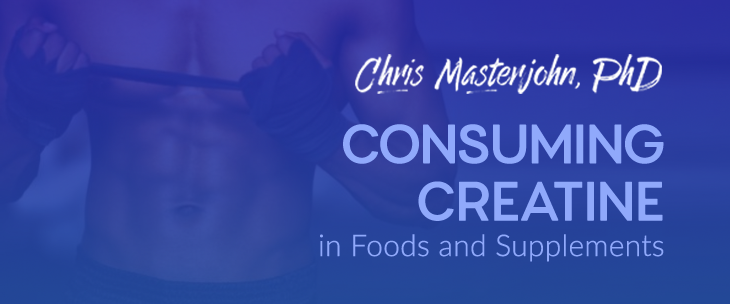
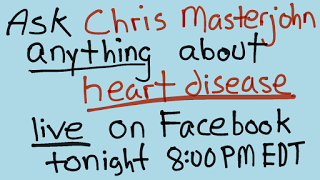
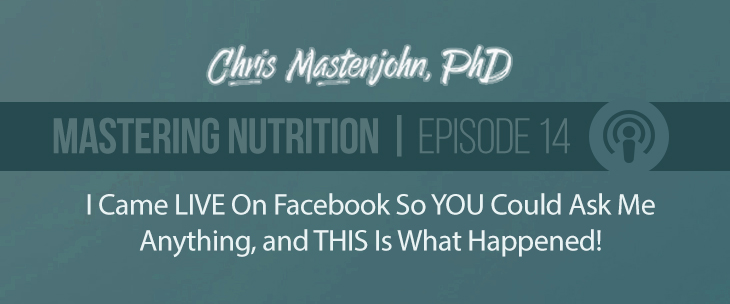
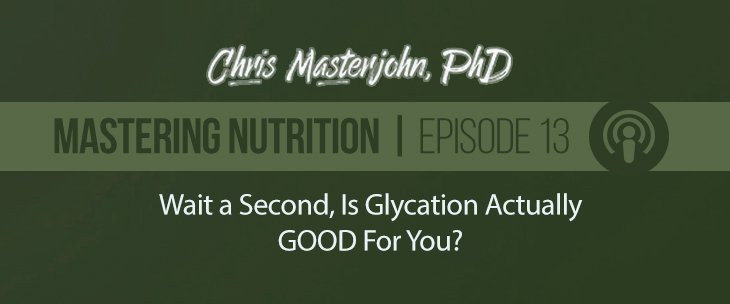
My son experienced symptoms of psychosis a few months ago. It may have been a perfect storm created by extremely high stress, moderate marijuana use, Covid, and possibly Creatine supplementation. A few other things to note is that he’s a big meat eater and a body builder. He has at least one C282Y gene mutation and may have one H63D mutation. His blood work showed very low B12 and low D. He stopped using marijuana altogether and we also asked him to stop using protein supplements that contained Creatine. At the same time, he started taking vitamin B and D supplements. The Creatine was removed because his doctor has observed personality changes in patients taking Creatine and I could tell the minute my son was taking it again because his thinking became very rigid. A small study showed that creatine supplements may deplete vitamin B12. Because we don’t have bloodwork history, it’s difficult to lay blame on one thing, but creatine supplements definitely seems to have a negative effect on him.
Thank you!
I have a question
How long can you take creatine for ?
Do you need to take breaks from it?
Same dosis for woman and men ?
Hello Dr. Masterjohn,
I have been doing ok with a creatine at 1 .0 fon lab test or kidney health. I have had issues with kidney stones since 2008 and an increase in stones in 2015, 2017 and now doing better drinking about 100 ounces of water a day. With 17% function in my right kidney (and I want to keep both my kidneys) would creatine be a supplement to benefit me?
Creatine supplement made me very dizzy so I had to discontinue taking it.
What’s your take on if creatine contributes to hair loss? Referring to the 2009 study with rugby players seeming to make that link.
Hi Chris. Always great material!!! Thanks.
Since creatine promotes muscle synthesis, is it good for preventing muscle atrophy in ageing or in conditions such as rheumatoid arthritis?
Creatine is thought to improve strength, increase lean muscle mass, and help the muscles recover more quickly during exercise. This muscular boost may help athletes achieve bursts of speed and energy, especially during short bouts of high-intensity activities such as weight lifting or sprinting. However, scientific research on creatine has been mixed. Although some studies have found that it does help improve performance during short periods of athletic activity, there is no evidence that creatine helps with endurance sports. Research also shows that not everyone’s muscles respond to creatine; some people who use it see no benefit.
http://www.cureidea.com/creatine-muscle-builder-reviews/
How to lower Creatinine levels ?
Depends why they are elevated but it’s usually taken as a sign of poor kidney function.
U r mentioned the brand optimized nutrition.. is it optimized or optimum?
My daughter is vegan (and only 13). I cannot seem to change her mind to get her to eat fish. She has lost a lot of muscle from deliberate food restriction (anorexia) and although she is technically weight restored, I feel she may not be eating a balanced diet with enough protein. I do not have her at home all the time, she also lives with her Dad half the time. If I give her a vegan creatine supplement, how much would be recommended? Also, should the creatine be combined with other nutrients such as magnesium or potassium? Is there a combination supplement you recommend for increasing muscle and overall health for a vegan?
Chris,
In all honesty though, do we know the long-term ramifications of consistent creatine use (5+ years) on sleep quality and the aging process? This article sums it up really well and I put a snippet below that really resonated with me… maybe the best thing is to cycle the 5g dose of Creatine for 6-12 weeks on, 6-12 off or something of that nature to mitigate the possible downsides of sleep debt/less non-REM sleep:
“So, if these effects are real, does creatine use reduce my sleep need?
Or does it just help me feel and function well on less sleep?
This distinction is important regarding how to interpret this topic. Reducing sleep need while fulfilling all the requirements of healthy sleep would be a panacea: I’d get more time in my waking life without repercussions. Yet if creatine helps me feel better with less sleep without allowing me all the sleep I need, the long-term consequences could be dire. My guess is that the former is more likely to be accurate… but it is nothing more than a guess. ”
http://blog.humanos.me/is-there-a-supplement-that-reduces-how-much-sleep-you-need/?utm_source=humanOS&utm_campaign=7e80d2f89f-RSS_EMAIL_CAMPAIGN&utm_medium=email&utm_term=0_b399e30187-7e80d2f89f-350883913
Hi, Chris
Have been doing 5g/day of creatine since listening to the podcast, to ease some suspected methylation issues. After a few weeks of disrupted sleep I can now say that I am feeling the best I have for some years, and I suspect the creatine is largely to thank.
I also listened to your podcast on glycine, and have tried playing around with larger doses of collagen (4-6tbsp/day) of late with mixed results. On the one hand it seems to improve sluggish thyroid symptoms and increases body temp and energy, but on the other it makes me very thirsty and gives me extremely dry lips. Just wondering if you might know what’s going on here?
Thanks
You may be increasing your methylation and needing more electrolytes as a result. I’ve had problems with mine being sluggish and when I can get my methylation back on track I always need more electrolytes. Hope this may help, as late as the reply is :o)
Creatine gives me insomnia, brain fog, and diarrhea. I suffer from post finasteride syndrome and the brain fog may possibly be related to this.
It is by no means a safe supplement that can be taken by all.
Everything isn’t for everyone, I’ve had the same issues with the brain fog and onset of high anxiety after a months use.
Hi Chris, You wrote:
“Our intestines have large finger-like projections known as villi that provide the enormous surface area needed for nutrient absorption”
Actually, villi are small, 0.5-1.6 mm in length. It’s hard to see them with a naked eye, from my personal experience.
thank you for a very informative article.
I recently discovered that I had very low creatinine levels and was considering supplementation. I also have the double MTHFR gene and am planning on doing more research into the connection but I’m eager to begin addressing the problem and have a desire to jump in and start supplementing but I wanted to see if there were specific labs I should start with to get a baseline other then the generic one I already have.
Many thanks Chris – as usual, your work is highly relevant !
Chris-
The past few times I experimented with creatine (including creapure), I ended up getting muscle cramps; fairly intense ones in my quads, for example, from running. I was taking 5g or less/day.
Is that just a factor of hydration? Even though I was drinking plenty of fluids (at least I thought so) and had no other obvious signs of dehydration.
Or could it be exposing an electrolyte imbalance or something?
when I started creatine, I loaded and ended up with the most intense “how is this even possible?” cramps in my calves. I would wake up screaming with my muscles completely locked up. It was one of the most bizarre things I’ve ever experienced. I was drinking water like crazy. I’ve since backed off creatine, but do put some in protein shakes 3x/week.
I’m now keto, and so have to manage my electrolytes. You can try magnesium baths, which feel great. I also supplement with chelated mag 2x/day, and I think it’s safe for everyone to do so. You could take one before bed, and it can help with sleep too (I also take omega-3 supplement before bed). Some keto people report that their cramping was fixed by potassium or sodium supplementation. Add the mag first, and maybe 1/2tsp sodium if you aren’t retaining water well (drink a lot, pee a lot, still feel dehydrated). Do a little research on potassium.
Some very slow&easy stretching of the legs (take the stretch to the point where you feel the stretch, back off a little, and hold for at least a minute).
Why might someone be sensitive to creatine supplementation, including those with creapure as their only ingredient? I feel good during the first day that I take it, but it disrupts my sleep cycle, makes me thirsty and gives me nasty joint pain while sleeping. L-carnitine and supplemental methyl-folate do the same thing to me minus the increase in thirst. Despite these odd tendencies, I can eat rare red meat and some raw leafy green vegetables just fine. I have been trying to figure this out for years as all three make me feel good until I am asleep, but almost no one addresses the downsides of creatine and carnitine. not the ones that I experience, anyway. Any imput would be appreciated! Thanks for all the great content and I hope that you have an awesome Christmas!
The first time I became interested in creatine was for the stereotypical athletic performance gains; and was impressed with what I experienced. I stopped using it and then years later was having some GI issues and ran across some research looking at creatine.
I started taking it again and it solved the GI problem. As you point out since it is a fundamental component of the ATP system it shouldn’t be surprising that it can dramatically impact so many systems in the body.
As a healthcare provider I get asked a lot about nutrition… Creatine is one the few supplements that I never cycle off of.
I love the fact that you’re willing to open the can of worms and try and sort through what the science currently tells us (or not) about these topics.
cheers,
BA
That’s great to hear, Brent!
Is there any Creatine in pork rinds , collagen powder or gelatine?
*creatine
What are your thoughts on “cycling” creating supplementation? Do you recommend it?
Creatine doesn’t need to be cycled. We discuss this in the podcast.
Great info! Any harm in taking a supplemental 2-3g and possibly going over 5g a day if already eating 1-2lbs of beef most days? Also, any need to drink extra water when supplementing?
Wow. Nothing about side effects, who should not take it… SNPs that might contraindicate, eg rs3903239. https://www.menshealth.com/health/creatine-side-effects-what-it-is-what-it-does
Great article. Is it ok to take creatine if one has mold, mercury, lead poisoning, hypothyroid and sibo? Also, if one is playing say 5 to 8 games of 2 on 2 beach volleyball when would you take what amount of creatine if you plan on playing back to back days and calves are always toast on back to back days? Appreciate the article and the time you put into it. I’m becoming a big fan of yours with the more I read. Have a great holiday Dr. Master john.